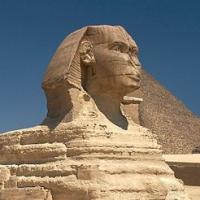Using La Sankta Biblio to learn Esperanto
Starkman,2010年5月11日の
メッセージ: 111
言語: English
bdlingle (プロフィールを表示) 2015年8月23日 21:27:25
orthohawk1 (プロフィールを表示) 2015年8月23日 22:12:29
bdlingle:I think it is a cool idea to use the Word of God to learn Esperanto. I would really love to read and study it in Esperanto someday. One thing I found from one translation is that in Exodus 20:10 when talking about the Sabbath, it says sed la sepa tago estas sabato de la Eternulo, which means "but the seventh day is (a) sabbath of the Lord", but it should say "la sepa tago estas la sabato de la Eternulo, because the Bible clear should say that it is "the" sabbath and not a Sabbath, which makes it sound like nothing special. Is it that way in other versions? Remember my friends, don't just read the Word, but study it too!Well, Zamenhof was Jewish and he did speak Hebrew, so I'd guess he would know how to translate that verse.
bdlingle (プロフィールを表示) 2015年8月23日 22:26:05
orthohawk1: Well, Zamenhof was Jewish and he did speak Hebrew, so I'd guess he would know how to translate that verse.I know he was Jewish. I just thought it was weird how it said a Sabbath in this verse and in another it says the Sabbath.
Sfinkso (プロフィールを表示) 2015年8月23日 22:35:29
bdlingle:I think it is a cool idea to use the Word of God to learn Esperanto. I would really love to read and study it in Esperanto someday. One thing I found from one translation is that in Exodus 20:10 when talking about the Sabbath, it says sed la sepa tago estas sabato de la Eternulo, which means "but the seventh day is (a) sabbath of the Lord", but it should say "la sepa tago estas la sabato de la Eternulo, because the Bible clear should say that it is "the" sabbath and not a Sabbath, which makes it sound like nothing special. Is it that way in other versions? Remember my friends, don't just read the Word, but study it too!The Hebrew does not have the article. Remember, you must read the text as it is, not try and read your theology back into it. There are great tools to help you on line (like the biblehub I link to above).
erinja (プロフィールを表示) 2015年8月24日 14:40:52
A sabbath in Hebrew is a day or period of rest, not only referring to the 7th day. Rosh Hashanah and Yom Kippur are both referred to as sabbaths in the original text, and Yom Kippur is often referred to as a "sabbath of sabbaths". Each seventh year is also a sabbath year for the land in the Hebrew bible, in which the land is not cultivated. We think of it as being the seventh day because of course this is the most frequent sabbath, the one that we talk about the most, but it doesn't mean it's the only sabbath.
In modern Hebrew, the same root is used to describe a strike. Putting down tools and resting, right?
bdlingle (プロフィールを表示) 2015年8月25日 1:37:35

Sfinkso (プロフィールを表示) 2015年8月25日 9:59:54
Objectivesea (プロフィールを表示) 2020年12月22日 19:40:23
Nephihaha (プロフィールを表示) 2020年12月24日 23:09:52
I think it almost goes without saying some parts of the Bible are worth dipping into more than others. I won't head straight for Leviticus for example or the more legalistic parts of the Epistles. I also find Mark easier to read than Luke. I've noticed this is the case in other language. Luke's opening chapters seem to use complex language and when I tried to read it in more poor Esperanto I just kept going for the dictionary.
Nephihaha (プロフィールを表示) 2020年12月24日 23:09:54


